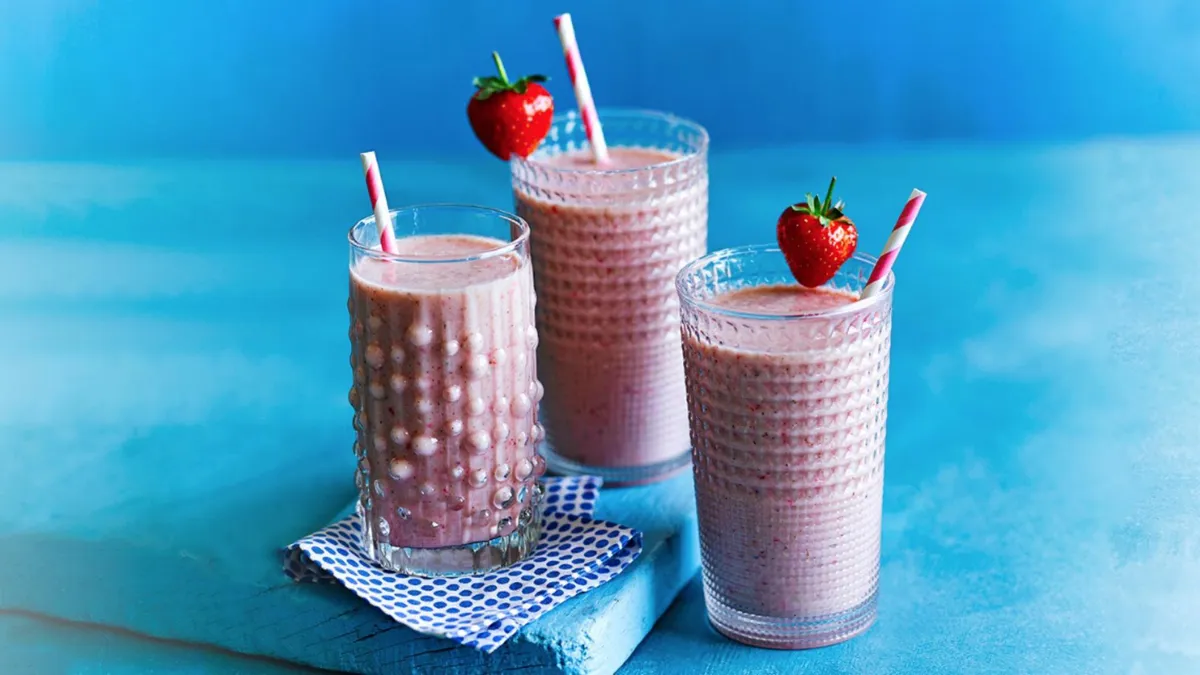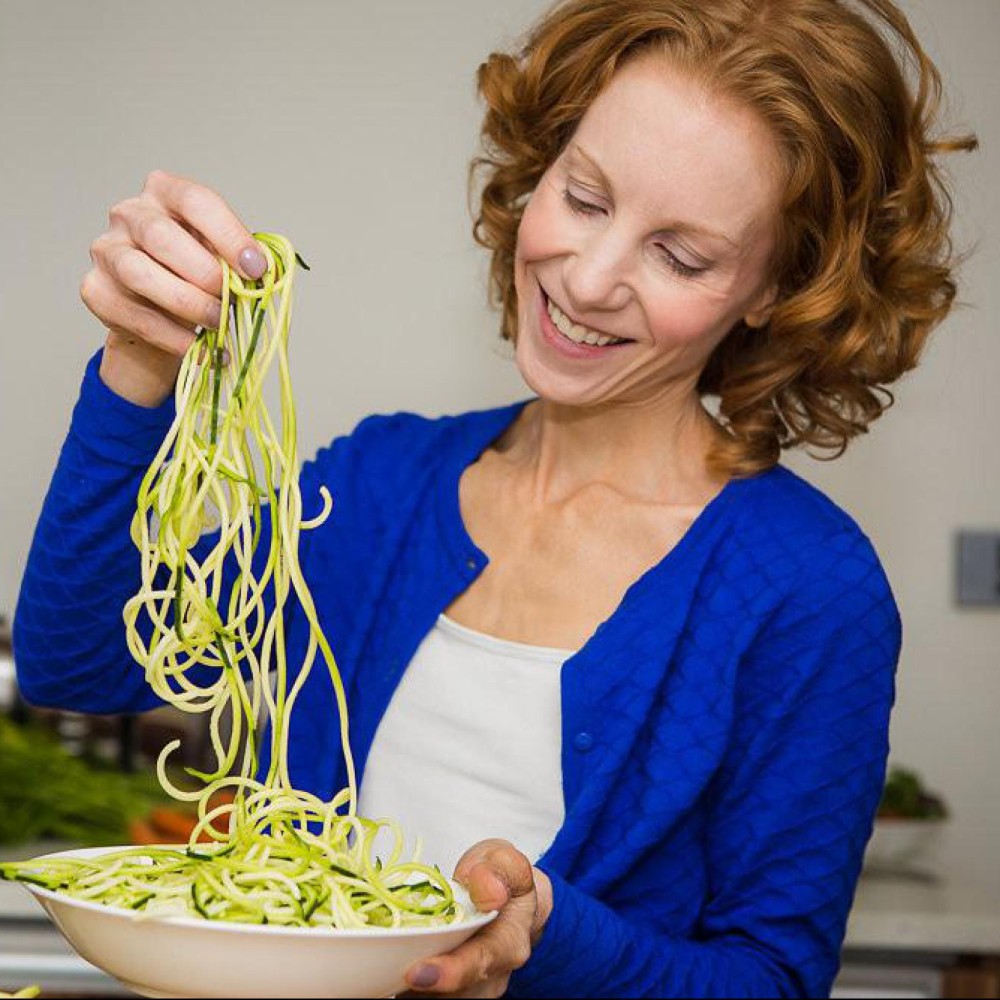We all feel tired from time to time, but if you’re suffering from a constant energy crisis, waking up groggy or finding it difficult to keep up your training, it’s time to take action.
- Coffee and cycling: what you need to know
- How to get a good night's sleep for a great day of cycling
Bouts of low energy are often due to a poor diet, over-exercise, stress or lack of sleep. If it’s persistent fatigue, you may want to consult your doctor in case there’s an underlying cause, but if it’s a pick-me-up you need, there are lots of natural energy-boosting remedies.
Fuel your body
Don’t expect to feel great if you’re running on empty. You need a nutrient-rich diet with regular meals and snacks. Eliminate ‘empty calories’ such as confectionery, pastries and fast foods and focus on wholegrains, nuts, seeds, fruit, veg and high quality proteins.
Check you’re eating sufficient carbs to keep your muscles filled with glycogen, especially before a long ride, and opt for low glycemic (slow release energy) meals to keep you fuelled for longer. Get bottle savvy too and drink at least two litres of water per day.
While ideally nutrients should come from your diet, this can be hard to achieve — which is where vitamins, minerals, herbs and other superfoods can help.
Top up your vitamins and minerals
Start by ensuring your body is getting sufficient vitamins and minerals. The B-complex vitamins are well known energy enhancers and support the nervous and immune systems.
Even a slight iron deficiency can result in fatigue and increase your susceptibility to infections
If you’re taking a multi-vitamin/mineral formula, check that it contains at least 25mg of each of the major B-complex vitamins (except B12, biotin and folate). Alternatively take a B vitamin complex supplying up to 50mg of the B vitamins, 50mcg B12 and biotin and 400mcg folic acid.
Vitamin C promotes a healthy immune system and supports the adrenal gland which controls the production of stress hormones in the body. During times of stress or strenuous training you may benefit from taking a supplement (up to 1,000mg daily) or an antioxidant supplement which includes vitamin C plus supporting nutrients like vitamin E, beta-carotene, zinc, selenium and plant compounds such as flavonoids.
Getting sufficient iron is important for maintaining all-day energy. Even a slight iron deficiency can result in fatigue and increase your susceptibility to infections. You may also benefit from a chromium supplement (up to 200mcg), which helps balance blood sugar levels, avoiding energy slumps.
Sample the super herbs
Don’t underestimate herbs. There are some amazing ones that increase energy, endurance and stamina, as well as adaptation to stress.
Other popular adaptogens include rhodiola, reishi mushroom, cordyceps and ashwagandha, often combined in energy formulas
Ginseng is one of the most widely used by athletes to boost physical endurance and stamina. Panax ginseng, also known as Asian, Chinese or Korean ginseng, has been used in Chinese medicine for thousands of years.
There are two other types: American and Siberian. All the ginsengs strengthen your body and increase energy. They work as adaptogens, helping the body to adapt or function normally while you’re coping with physical or emotional stress. While you can take ginseng continuously, it is often recommended you take it for six weeks and then rest for one or two weeks before starting again. Take between 100-250mg Panax daily or 300-400mg Siberian ginseng.
Ginseng can interact with blood thinners and anti-inflammatories, so check with your doctor first if taking medication. Similarly the combination of ginseng and caffeine can lead to side effects such as nervousness, insomnia and stomach upsets.
Other popular adaptogens include rhodiola, reishi mushroom, cordyceps and ashwagandha, often combined in energy formulas. Rhodiola is a well known anti-fatigue herb and seems to enhance oxygen efficiency, increasing blood flow and strengthening the immune system. It may also have a positive effect on increasing fatty acid utilisation, sparing glycogen and reducing lactic acid build-up.
If your brain is feeling a little foggy, try ginkgo biloba or gotu kola. While both are considered brain foods they are equally useful for helping to cope with stress and relieve fatigue.
Graze on green superfoods
For true longterm vitality you can’t do much better than green superfoods, a whole category of nutritional energisers. This includes wheatgrass and barley grass, chlorella and spirulina. All are densely packed with vitamins, minerals, protein, chlorophyll and essential fats.
Spirulina, a blue-green algae, contains over 65% complete protein. A great source of iron and B vitamins, it makes a fantastic pick-me-up. It’s available in capsules or as a powdered form which can be stirred into juices or smoothies — like our energy-boosting recipe below — making a perfect pre- or post-exercise drink.
Another popular ingredient in energy drinks, bars and supplements is green tea extract, which is rich in nutrients called bioflavonoids, including epigallocatechin gallate or EGCG — shown to increase energy and boost the body’s metabolic rate.
While you can get the benefits from sipping green tea, the extract in supplement form is more potent and caffeine-free.
Other energy nutrients to consider
Co-enzyme Q10 isn't essential nutrient found naturally in the body and in foods such as kidney, liver, spinach, alfalfa and soybeans. A powerful antioxidant, it also acts in conjunction with enzymes to speed up the metabolic process and has an essential role in energy production.
Our bodies can make Co Q10, but production declines with age, and taking a daily supplement after the age of 40 may help enhance stamina and energy. Try taking between 50mg-100mg twice a day. It may be combined in formulas with another important energy co-enzyme, nicotinamide adenine dinucleotide (NADH).
L-carnitine is an amino acid needed for energy production and fat metabolism. It’s found in meat and dairy foods and can be made by the body. Deficiencies can occur in people on low protein diets, vegetarians and vegans, or when other nutrients are in short supply. Carnitine supplements are widely available or you may wish to check your overall protein intake and, if necessary, supplement with a whey protein powder instead.
Treat yourself to an energy-boosting smoothie
A creamy smoothie, packed with energy-boosting nutrients, is perfect as a pre- or post-cycle snack. Adding whey protein and spirulina is a fantastic way of boosting your nutrient intake without overloading the stomach or consuming huge numbers of calories.

Avocados may be fatty but they are rich in healthy monounsaturated fat plus they contain plenty of fibre, folic acid, iron and vitamin E. They are also one of the top sources of potassium, which is great for aiding mineral balance and reducing fluid retention.
Should I try caffeine?
Caffeine has long been used in sports to boost performance. You'll find it in sports and energy drinks as well as coffee, tea, cola and chocolate or as caffeine pills. It acts on the central nervous system, affects muscle contraction, stimulates adrenaline release and mobilises fatty acid release.
This means more fatty acids are used for energy, sparing glycogen stores which could increase endurance. While beneficial just before a competition, regular consumption can upset the body's blood sugar levels making you feel more exhausted than before. Being a diuretic, it can also promote fluid loss so if you do decide to use caffeine, make sure you are well hydrated before training or competition.
